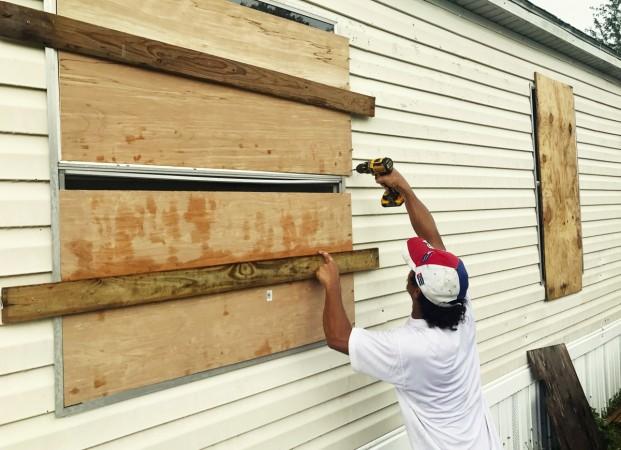As Hurricane Irma gears up to batter Florida this weekend, after wreaking havoc in the Caribbean Islands, more than 5.6 million residents have been ordered to leave the state to move to safety. The storm was earlier downgraded to category four, but the winds have picked up again becoming a category five storm and making a landfall in Cuba.
Irma will hit the state of Florida as a category five storm by early Sunday morning between 5 am and 7 am ET, and will bring strong winds and heavy rains to the sunshine state. Florida Governor Rick Scott urged people to leave as soon as possible and said that those who intend to stay would have to do it at their own risk.

"If you are planning to leave and do not leave tonight, you will have to ride out this extremely dangerous storm at your own risk," Scott said at a press conference. "You are not going to survive this if it happens. Now is the time to evacuate."
Residents living in the southern half of the state as well as the inland areas have been asked to leave. Officials have said that the storm is "extremely dangerous" with winds at a speed of about 250 km per hour.

In preparation, the last flights jetted out of Miami International Airport and Fort Lauderdale-Hollywood International Airport on Friday night. While the Miami airport remains open as of now, Fort Lauderdale airport has been shut down. Residents who plan to stay and weather the storm have also been stocking up on supplies and other necessities. While some were seen nailing shutters to the windows, the Associated Press reported that many ATM machines were out of cash with people stocking up, as the power outages would make it impossible to use credit cards.

"Obviously Hurricane Irma continues to be a threat that is going to devastate the United States," Brock Long, administrator of the Federal Emergency Management Agency (FEMA), said at a press conference on Friday morning. "We're going to have a couple rough days."
Irma is likely to cause landslides and flash floods, and also uproot trees, bring down electricity poles, blow away roofs and cause some damage to even well-built houses.
Meanwhile, Virginia too is likely to see the effects of Irma and a state of emergency has been declared. 'It is unfortunate that just as our nation has begun the process to repair the catastrophic damage from Hurricane Harvey, that we are faced with another extreme storm,' the Daily Mail quoted Virginia's Governor Terry McAuliffe.
"However, if there is one lesson we can take from the tragic events that occurred in Texas, it is that we must redouble our preparation efforts.
"The order I issued today is intended to both protect our commonwealth and to make sure we have every option at our disposal to help our neighboring states when Irma makes landfall."
Irma brought devastation to the Caribbean Islands through the week. It first hit the dual-nation island of Antigua and Barbuda. Almost all the buildings have reportedly been damaged in Barbuda leaving about 1,400 residents homeless. Irma also brought strong winds in these regions accompanied by heavy rainfall, which left about 900,000 people without electricity.
Irma hit Haiti, the northern coast of the Dominican Republic, and the Turks and Caicos Islands. Virginia Clerveaux, director of Disaster Management and Emergencies, said that this was the first time that the Turks and Caicos Islands were facing a category five storm.













